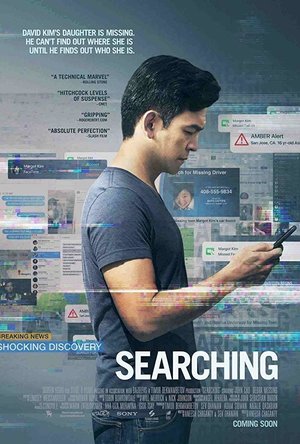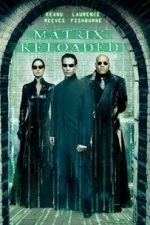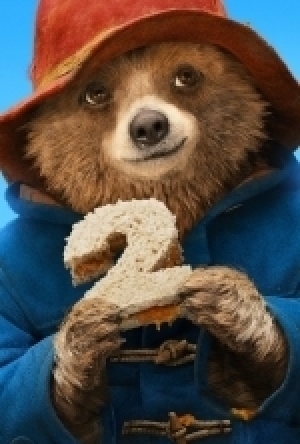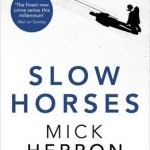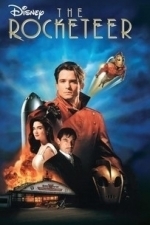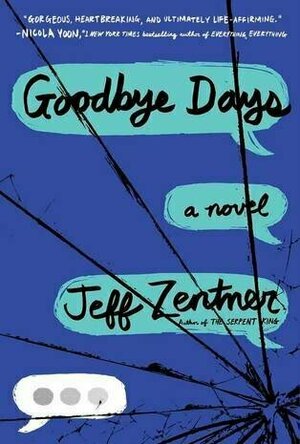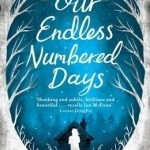Search
Search results
Neon's Nerd Nexus (360 KP) rated Searching (2018) in Movies
May 14, 2019
Look deeper
#searching #searchingmovie is an extremely intense, clever & emotionally draining film that for a directorial debut is actually quite a remarkable achievement. I like #Johncho I feel he's one of those actors that really doesnt get enough time to truly shine, so with him being the star of searching its great to see him finally get to seriously act. He's just so extremely likable & within the first 10 minutes we are introduced to him & his #family so well that an instant #emotional connection to them is formed. Told entirely through a screen searching does a great job of creating suspense & tension by using the flaws/interface of things we have all become a custom to as neat little visual cues (eg just missing a call by a few seconds, waiting for a video to buffer, seeing someone go offline while talking to them or even typing what you want to say only to delete it & type something different). This works perfectly & is never boring keeping you on edge & invested throughout while also being eerily #beautiful at times. Themes of neglect, distrust, loss & #depression are present throughout & theres also a sad look at how although we are all so connected to one another nowadays the sad fact is we have never also been more alone & afraid to show who we really are or what we are really thinking. Different sides of #Socialmedia are also explored well here too & we are shown how it can not only be used to help but also to hinder & manipulate even in a serious case like this (as well as people using the case to gain thier own fame too). Story wise its good with all the plot twists constantly shocking & unexpected with great build up too. Characters all have great back story & are all played well by the cast. My only gripe was the pacing after the final twist as it not only felt rushed but a little exposition heavy too. If your looking for a #film thats going to give your #emotions a run you'll #love Searching, while its no #nocturnalanimals its still smart, well constructed, gripping & an extremely entertaining little #drama. #instagram #apple #catfish #weekend #odeon #odeonlimitless #filmbuff #filmreview #filmcritic #internet #trending #youtube #facebook #followers #like
Andy K (10823 KP) rated The Matrix Reloaded (2003) in Movies
Jun 2, 2019
The car chase scene saved it
I remember when the Matrix Reloaded was released in 2003. The hype train could not have been going any faster and full throttle. The fact that both parts 2 and 3 were filmed back to back and released the same year meant Warner Brothers was betting the farm that the movies would be huge successes and may continue to build a historic franchise for them.
The story continues kind of where the first truly exceptional groundbreaking first film leaves off; however, the tone is much different. I didn't think very much interesting exposition even occurs. The heroes and villains are pretty much the same as the first film. There is some strange Zion dance sequence where you get to see too many nipples and the story is kind of confusing and hard to follow.
When they started talking about the keymaster and gatekeeper, I started thinking of Ghostbusters and kind of laughed about it. They meet some French guy, his girlfriend some some weird twins with white dreadlocks who turn to ghosts whenever they are threatened.
And then comes the highway chase scene...
One of the great film car chases, the sequence goes on forever it seems (like over 30 minutes) and took months to film I had read. Having not seen the film in a while, I was drawn to the edge of my seat as some of the nuances were fresh to me as some of the details faded over time.
I had always thought one of the most the interesting parts of the original film, other than the groundbreaking special effects, was more cerebral meaning we are all sitting in these globules hooked up to the master machine looking like some sort of Borg creature powering the enemy Matrix while drowning in our dreams.
This movie takes a different direction and becomes more of an interesting sci fi drama with one killer car chase scene. The Smith battle at the end I felt was too forced and processed to be epic or interesting.
To be continued... in the Matrix Revolutions
The story continues kind of where the first truly exceptional groundbreaking first film leaves off; however, the tone is much different. I didn't think very much interesting exposition even occurs. The heroes and villains are pretty much the same as the first film. There is some strange Zion dance sequence where you get to see too many nipples and the story is kind of confusing and hard to follow.
When they started talking about the keymaster and gatekeeper, I started thinking of Ghostbusters and kind of laughed about it. They meet some French guy, his girlfriend some some weird twins with white dreadlocks who turn to ghosts whenever they are threatened.
And then comes the highway chase scene...
One of the great film car chases, the sequence goes on forever it seems (like over 30 minutes) and took months to film I had read. Having not seen the film in a while, I was drawn to the edge of my seat as some of the nuances were fresh to me as some of the details faded over time.
I had always thought one of the most the interesting parts of the original film, other than the groundbreaking special effects, was more cerebral meaning we are all sitting in these globules hooked up to the master machine looking like some sort of Borg creature powering the enemy Matrix while drowning in our dreams.
This movie takes a different direction and becomes more of an interesting sci fi drama with one killer car chase scene. The Smith battle at the end I felt was too forced and processed to be epic or interesting.
To be continued... in the Matrix Revolutions
Phillip McSween (751 KP) rated Paddington 2 (2017) in Movies
Jan 19, 2018
Great Fun
I'm hoping this review doesn't turn into a lovefest, but Paddington 2, like its predecessor, had a way of pushing all of my right buttons. The gang is back with a few new faces to add, like Hugh Grant playing the role of antagonist Phoenix Buchanan. Grant excels in the role as you hate him and love him at the same time. He's smug, playful, and just a downright jerk. The film wouldn't have been the same without him.
The film's humor packs a powerful punch in a number of ways. It's hilariousness comes not just in the things that hit you directly, but the side things happening at the same time. In one scene the Brown family is talking amongst themselves with their usual funny banter while Paddington destroys an entire candy apple in one bite. I'm excited to go back again and revisit some of the things I may have missed.
Paddington's Aunt Lucy has her hundredth birthday coming up and Paddington finds something extremely special to give to her. He decides to get a job and scrounge up his cash to buy the item, but someone else has their sights on the item as well and is willing to stop at nothing to get it.
It's the perfect film to start 2018 off with a bang. While Paddington 2 does have a few extreme moments, those moments are forgivable when looking at the film as a whole. Every kids movie has its extreme moments, but not every kids movies can successfully pass on a positive message without making it look preachy. This is where Paddington 2 shines and sets itself apart.
The message is simple: We get further in life when we help each other and love each other. Now's as good a time as any to reinforce that statement. Paddington reminds us of who we should all strive to be as people. He goes through life without a care in the world and always puts his family and friends first.
A fun and heartwarming ride, you'll find yourself rooting for Paddington the whole way through. I give Paddington 2 a 98. Talk about setting the bar high for 2018! It's gonna be a great year.
The film's humor packs a powerful punch in a number of ways. It's hilariousness comes not just in the things that hit you directly, but the side things happening at the same time. In one scene the Brown family is talking amongst themselves with their usual funny banter while Paddington destroys an entire candy apple in one bite. I'm excited to go back again and revisit some of the things I may have missed.
Paddington's Aunt Lucy has her hundredth birthday coming up and Paddington finds something extremely special to give to her. He decides to get a job and scrounge up his cash to buy the item, but someone else has their sights on the item as well and is willing to stop at nothing to get it.
It's the perfect film to start 2018 off with a bang. While Paddington 2 does have a few extreme moments, those moments are forgivable when looking at the film as a whole. Every kids movie has its extreme moments, but not every kids movies can successfully pass on a positive message without making it look preachy. This is where Paddington 2 shines and sets itself apart.
The message is simple: We get further in life when we help each other and love each other. Now's as good a time as any to reinforce that statement. Paddington reminds us of who we should all strive to be as people. He goes through life without a care in the world and always puts his family and friends first.
A fun and heartwarming ride, you'll find yourself rooting for Paddington the whole way through. I give Paddington 2 a 98. Talk about setting the bar high for 2018! It's gonna be a great year.
Adam Colclough (3 KP) rated Slow Horses in Books
Mar 12, 2018
The awkward squad to the rescue
Slough House is the place where the secret service dumps those operatives who don’t’ make the grade. A bureaucratic limbo as far away from the glamourous world inhabited by James Bond as Biarritz is from the outer moons of Saturn.
The crew of misfits incarcerated there under the command of the objectionable Jackson Lamb are called back to active service when a terrorist gang kidnap a teenager and threaten to behead him live online. Suddenly the awkward squad are players in a deadly game with only one possible winner.
In this book, first published in 2010 and part of an award-winning quartet, Mick Herron delivers all the thrills you would expect as he pits his cast of oddballs against a chillingly plausible enemy.
Spy novels often describe hidden worlds as a way of talking about the one with which we are all familiar. In the Sixties Le Carre wrote about a secret service that resembled nothing so much as minor Oxbridge college down on its luck but clinging tightly to past glories. Any similarity to a Britain that for all the promises of wonders delivered by the ‘white heat of technology’ was starting to look decidedly seedy was entirely intentional.
Mick Herron writes about a service that has been capture by bean counters and career obsessed middle managers. Drowning in paperwork, stymied by procedure and inclined to try and be a little too clever for its own good.
He also creates delightfully complex characters, the ‘slow horses’ of the title may all be difficult individuals, but that gives them fears and failings that make them infinitely more interesting than monochrome supermen like Bond or Bourne. By the book’s end he even manages to provide them with if not redemption than the unexpected feeling they may have a purpose after all.
The best spy novels are always about more than just chasing after a McGuffin. This book is unafraid to look at troubling ideas and to present characters who don’t tick the boxes of traditional heroism. That puts it in the running to become a classic of the genre.
The crew of misfits incarcerated there under the command of the objectionable Jackson Lamb are called back to active service when a terrorist gang kidnap a teenager and threaten to behead him live online. Suddenly the awkward squad are players in a deadly game with only one possible winner.
In this book, first published in 2010 and part of an award-winning quartet, Mick Herron delivers all the thrills you would expect as he pits his cast of oddballs against a chillingly plausible enemy.
Spy novels often describe hidden worlds as a way of talking about the one with which we are all familiar. In the Sixties Le Carre wrote about a secret service that resembled nothing so much as minor Oxbridge college down on its luck but clinging tightly to past glories. Any similarity to a Britain that for all the promises of wonders delivered by the ‘white heat of technology’ was starting to look decidedly seedy was entirely intentional.
Mick Herron writes about a service that has been capture by bean counters and career obsessed middle managers. Drowning in paperwork, stymied by procedure and inclined to try and be a little too clever for its own good.
He also creates delightfully complex characters, the ‘slow horses’ of the title may all be difficult individuals, but that gives them fears and failings that make them infinitely more interesting than monochrome supermen like Bond or Bourne. By the book’s end he even manages to provide them with if not redemption than the unexpected feeling they may have a purpose after all.
The best spy novels are always about more than just chasing after a McGuffin. This book is unafraid to look at troubling ideas and to present characters who don’t tick the boxes of traditional heroism. That puts it in the running to become a classic of the genre.
Phillip McSween (751 KP) rated The Rocketeer (1991) in Movies
Feb 12, 2018
Hated it
Me trying to find something I liked about The Rocketeer: "Well that part was cool. Yeah, but it was quickly ruined by x,y, and z. Besides, the terrible part that happened right after made it all for nothing. Ok, but what about...Nope, that was pretty crappy too."
If Batman Vs. Superman: Dawn of Justice has taught us anything it's that sometimes superhero movies get it wrong. Not only does The Rocketeer get it wrong, it steps on its own feet before it can even get off the blocks properly. Oftentimes we have the case of decent actors getting placed with a dud of a script, but that's far from the situation here. Sure the actors didn't have much of a chance with the awful writing, but I have the strangest feeling that even if the writing had been superb these actors still would have found a way to muck it up. It's that bad. I'm talking grind your teeth bad.
To its credit, the film doesn't dupe you as it gets off to a terrible start almost immediately. Twenty minutes in and I was already thinking of the number of different things that I could have been doing rather than watching The Rocketeeer. Was it all bad? No, but mostly. The redeemable parts were quickly ruined by their own contradictions. Perfect example, everytime main character Cliff Secord (Billy Campbell) donned the Rocketeer suit, the action was pretty sweet to watch. Considering the fact that he wasn't in the suit for even a full half hour, things soured pretty quickly.
Corny moments abound in the film. I was hoping for a base that was more serious and less campy and all I can say is: Mission Not Accomplished. Between the absolute joke of a villain, the lame plot twist, and a number of other things, I don't know what bothered me the most.
The Rocketeer is the story of an aviator who is on the run from the mob after discovering a jet pack in the 1930's. Yeah, now that I think about it, the plot should have told me everything I needed to know about expectations. Skip it. I give it a 10.
If Batman Vs. Superman: Dawn of Justice has taught us anything it's that sometimes superhero movies get it wrong. Not only does The Rocketeer get it wrong, it steps on its own feet before it can even get off the blocks properly. Oftentimes we have the case of decent actors getting placed with a dud of a script, but that's far from the situation here. Sure the actors didn't have much of a chance with the awful writing, but I have the strangest feeling that even if the writing had been superb these actors still would have found a way to muck it up. It's that bad. I'm talking grind your teeth bad.
To its credit, the film doesn't dupe you as it gets off to a terrible start almost immediately. Twenty minutes in and I was already thinking of the number of different things that I could have been doing rather than watching The Rocketeeer. Was it all bad? No, but mostly. The redeemable parts were quickly ruined by their own contradictions. Perfect example, everytime main character Cliff Secord (Billy Campbell) donned the Rocketeer suit, the action was pretty sweet to watch. Considering the fact that he wasn't in the suit for even a full half hour, things soured pretty quickly.
Corny moments abound in the film. I was hoping for a base that was more serious and less campy and all I can say is: Mission Not Accomplished. Between the absolute joke of a villain, the lame plot twist, and a number of other things, I don't know what bothered me the most.
The Rocketeer is the story of an aviator who is on the run from the mob after discovering a jet pack in the 1930's. Yeah, now that I think about it, the plot should have told me everything I needed to know about expectations. Skip it. I give it a 10.
Nicole Hadley (380 KP) rated Rooftops of Tehran in Books
Jun 18, 2018
<a href="https://awindowintobooks.wordpress.com">Full Review</a>
I received, Rooftops of Tehran by Mahbod Seraji, for free in exchange for a review. The synopsis of the book immediately caught my attention. From the beginning I was excited to read this novel. The story takes place in Iran. The story shows how American involvement affects everyone and not always in a good way. The characters are well developed. The story has twists, that I never expected but kept the story going.
Pasha, Ahmed, Zari and Faheemah are the main characters. Pasha and Ahmed spend many hours on his rooftop talking, joking, dreaming of the love of their lives and contemplating life. Pasha fantasized being with Zari but she was to married off to a childhood friend. While Ahmed wanted to be with Faheemah and ended up dating with the approval of her parents. Pasha and his friends live in Iran in the 1970's where they are skeptical of religion, arrange marriage and the government of their country. The US is viewed as a place of opportunity but as a place that causes problems.
By reading this book I was able to gain insight to middle class life in Iran during the 1970's until the rule of the Shah. This is a coming of age book that appears simple in the beginning but as the story progresses life gets complicated due to arranged marriage customs, and modern ideas from western culture. School is a place that is run by petty tyrants and when rules are not obeyed punishment is what follows. At the core, is the fundamentalism of Iran's future.
The SAVAK is present everywhere and people of all ages feel their impact. SAVAK have an impact on Iranian culture and not in a good way. They cause confusion, heartbreak and even death.
This story is written in a fast paced narrative perspective. The author has developed the characters well. At the end of the story I felt like I was sitting on the rooftop with Pasha experiencing his life, the twists, the secrets and all that effected his life with him.
I received, Rooftops of Tehran by Mahbod Seraji, for free in exchange for a review. The synopsis of the book immediately caught my attention. From the beginning I was excited to read this novel. The story takes place in Iran. The story shows how American involvement affects everyone and not always in a good way. The characters are well developed. The story has twists, that I never expected but kept the story going.
Pasha, Ahmed, Zari and Faheemah are the main characters. Pasha and Ahmed spend many hours on his rooftop talking, joking, dreaming of the love of their lives and contemplating life. Pasha fantasized being with Zari but she was to married off to a childhood friend. While Ahmed wanted to be with Faheemah and ended up dating with the approval of her parents. Pasha and his friends live in Iran in the 1970's where they are skeptical of religion, arrange marriage and the government of their country. The US is viewed as a place of opportunity but as a place that causes problems.
By reading this book I was able to gain insight to middle class life in Iran during the 1970's until the rule of the Shah. This is a coming of age book that appears simple in the beginning but as the story progresses life gets complicated due to arranged marriage customs, and modern ideas from western culture. School is a place that is run by petty tyrants and when rules are not obeyed punishment is what follows. At the core, is the fundamentalism of Iran's future.
The SAVAK is present everywhere and people of all ages feel their impact. SAVAK have an impact on Iranian culture and not in a good way. They cause confusion, heartbreak and even death.
This story is written in a fast paced narrative perspective. The author has developed the characters well. At the end of the story I felt like I was sitting on the rooftop with Pasha experiencing his life, the twists, the secrets and all that effected his life with him.
I adore this book. It's not only a good science fiction story, but also fantastically character-driven, which is rare in genre fiction. That's great for me. When I read a book, I care more about psychological development than what a shiny setting and fun toys it has.
It's not a happy, frolic-through-the-daisies type of story. We're talking not only about war, but child abuse, human trafficking and rape. It can be quite disturbing, if that type of thing isn't your cup of tea. But if that doesn't particularly bug you, it's a fantastic book.
One thing that really bugs me, though, is how so many people insist there's slash. As a person who's not into that kind of thing, that originally turned me off of reading it, because I had a bad feeling the main character, Jos, was going to find healing comfort from his trauma in the loving arms of another guy, and it would go downhill from there.
Luckily, I decided to read it anyway. And I don't see very much slash there. Sure, one character definitely has a thing for Jos, and the villain's a real creep, and then there's a character who's gay by Word Of God, but that's it for this book. The rest of it's pretty much characters insinuating, which is designed to anger other characters. That's it.
Jos, himself, is on the asexual side. He treats attraction as a completely alien concept. Niko is a surrogate father to him. I see him as feeling responsible for protecting Evan. Evan, who frustrates him a great deal. And one time, Jos seriously needed a hug, and fell asleep while being hugged. Woke up, and went right back to the asexual, PTSD, Hates-Being-Touched Jos we know and love.
None of that makes him gay. And three characters who are bi or gay does in no way a majority make. Sure, the shipping potential is there for fans if they want to use it, but certain type of fans are always finding stuff where there's canonically nothing.
In short, one of the best books I've read, and I absolutely loved the main character. He is not gay, and neither are the majority of characters.
It's not a happy, frolic-through-the-daisies type of story. We're talking not only about war, but child abuse, human trafficking and rape. It can be quite disturbing, if that type of thing isn't your cup of tea. But if that doesn't particularly bug you, it's a fantastic book.
One thing that really bugs me, though, is how so many people insist there's slash. As a person who's not into that kind of thing, that originally turned me off of reading it, because I had a bad feeling the main character, Jos, was going to find healing comfort from his trauma in the loving arms of another guy, and it would go downhill from there.
Luckily, I decided to read it anyway. And I don't see very much slash there. Sure, one character definitely has a thing for Jos, and the villain's a real creep, and then there's a character who's gay by Word Of God, but that's it for this book. The rest of it's pretty much characters insinuating, which is designed to anger other characters. That's it.
Jos, himself, is on the asexual side. He treats attraction as a completely alien concept. Niko is a surrogate father to him. I see him as feeling responsible for protecting Evan. Evan, who frustrates him a great deal. And one time, Jos seriously needed a hug, and fell asleep while being hugged. Woke up, and went right back to the asexual, PTSD, Hates-Being-Touched Jos we know and love.
None of that makes him gay. And three characters who are bi or gay does in no way a majority make. Sure, the shipping potential is there for fans if they want to use it, but certain type of fans are always finding stuff where there's canonically nothing.
In short, one of the best books I've read, and I absolutely loved the main character. He is not gay, and neither are the majority of characters.
Katie Guinn (34 KP) rated Goodbye Days in Books
Dec 7, 2018
Where do I start with this book? I read Jeff Zentner’s debut novel, The Serpent King, last year and I absolutely loved it, I’m talking one of my favorite reads of the year. And after finishing his follow-up novel, it’s safe to say that he’s becoming an auto-read author for me. The story opens with Carver Briggs (named after Raymond Carver and nicknamed Blade, how cool is that?) attending the funerals of his three best friends who were killed in an auto accident while texting Carver. As you can imagine, Carver is constantly plagued by guilt, grief, and the threat of possible prosecution. Every time I picked up this book, I immediately had a lump in my throat, the emotion was so real and so raw. Throughout the course of the book, Carver has “goodbye days” with each of his friends’ families, sharing memories and trying to make peace with his loss. They were the hardest parts to read, but also the most beautiful, where you could really feel Carver’s love for his friends and the depth of his grief.
One of my favorite things about Jeff Zentner is how he writes his characters. Carver and his friends, The Sauce Crew, feel like real teenage boys, sometimes cringingly so. Zentner writes misfits and outcasts as only someone who has been there can; honestly and compassionately. His prose sometimes feels almost poetical, lyrical; which makes sense. He’s also a guitarist and songwriter with five albums under his belt, who’s recorded with Iggy Pop and Debbie Harry. His love for music is a common thread in his books, both of which feature musicians and the power of music to heal and inspire. (The music-related Serpent King cameo was possibly my favorite thing in this novel)
While I didn’t love this one quite as much as The Serpent King, it was still a five star read for me and I recommend it if you’re a YA contemporary fan or if you just enjoy having your heart ripped out of your chest and shredded into confetti multiple times.
One of my favorite things about Jeff Zentner is how he writes his characters. Carver and his friends, The Sauce Crew, feel like real teenage boys, sometimes cringingly so. Zentner writes misfits and outcasts as only someone who has been there can; honestly and compassionately. His prose sometimes feels almost poetical, lyrical; which makes sense. He’s also a guitarist and songwriter with five albums under his belt, who’s recorded with Iggy Pop and Debbie Harry. His love for music is a common thread in his books, both of which feature musicians and the power of music to heal and inspire. (The music-related Serpent King cameo was possibly my favorite thing in this novel)
While I didn’t love this one quite as much as The Serpent King, it was still a five star read for me and I recommend it if you’re a YA contemporary fan or if you just enjoy having your heart ripped out of your chest and shredded into confetti multiple times.
Goddess in the Stacks (553 KP) rated Our Endless Numbered Days in Books
Sep 26, 2018
I don't like unreliable narrators. I didn't realize, at first, that Peggy was one. Even though she mentions at the start of the book that a doctor said she had Korsakoff's syndrome - meaning malnutrition has messed with her memories - I assumed that it was just because her experiences were so unbelievable that the doctor thought she'd made things up. I also don't like unreliable narrators because the author obviously knows what truly happened. Leaving the reader in the dark about it seems rude.
Peggy's narration does seem childlike, often. While at the beginning of the book, that can be excused because she is eight years old, by the end she is seventeen, yet still talking about things with a child's understanding. I thought that was the effect of Korsakoff's syndrome, not that she was entirely making some things up.
In our endless numbered days, Peggy is effectively kidnapped by her father when she is eight, and taken to some place deep in the German forest. She spends the next nine years alone in the forest with him, trapping squirrels, gathering roots and berries, and growing simple crops in a small vegetable patch. He tells her, repeatedly, making her repeat it back to him, that the rest of the world was destroyed in a massive storm. They are the last two people alive in their small, sheltered valley. She doesn't question it until she sees a man in their forest, and that eventually leads her to find civilization again. The book is told in two timelines, flashing back and forth from her memories of her time in the forest, and the present where she's attempting to re-acclimate to London.
I'm not really sure what to believe; Peggy's memory or what her mother thinks happened. There are just enough oddities to make either story plausible. I think I prefer Peggy's version. But that's the trouble with unreliable narrators; there's no way to actually know. I don't like ending a book frustrated. Books should make you feel things, yes, but frustration is an odd emotion to aim for.
This book is odd.
You can find all my reviews at http://goddessinthestacks.com
Peggy's narration does seem childlike, often. While at the beginning of the book, that can be excused because she is eight years old, by the end she is seventeen, yet still talking about things with a child's understanding. I thought that was the effect of Korsakoff's syndrome, not that she was entirely making some things up.
In our endless numbered days, Peggy is effectively kidnapped by her father when she is eight, and taken to some place deep in the German forest. She spends the next nine years alone in the forest with him, trapping squirrels, gathering roots and berries, and growing simple crops in a small vegetable patch. He tells her, repeatedly, making her repeat it back to him, that the rest of the world was destroyed in a massive storm. They are the last two people alive in their small, sheltered valley. She doesn't question it until she sees a man in their forest, and that eventually leads her to find civilization again. The book is told in two timelines, flashing back and forth from her memories of her time in the forest, and the present where she's attempting to re-acclimate to London.
I'm not really sure what to believe; Peggy's memory or what her mother thinks happened. There are just enough oddities to make either story plausible. I think I prefer Peggy's version. But that's the trouble with unreliable narrators; there's no way to actually know. I don't like ending a book frustrated. Books should make you feel things, yes, but frustration is an odd emotion to aim for.
This book is odd.
You can find all my reviews at http://goddessinthestacks.com
Ivana A. | Diary of Difference (1171 KP) rated Ready Player One in Books
Oct 26, 2018
"Everyone my age remembers where they were and what they were doing when they first heard about the contest.’’
We are in the year 2045, where while Earth is deserted and almost destroyed, people don’t realise because they are too busy living in a virtual world - the Oasis!
The Oasis is a place where you can create an avatar for free, you can level up, you go to a school and you work inside the Oasis. This virtual world is filled with references from the 1980s. Cities are built in such a way, video games and books and movies still go on.
When the famous creator of the Oasis, James Halliday, dies, it turns out that there is a contest, and the person that will manage to find the ''Easter egg'' would inherit ownership of the Oasis.
We see the story from the point of view of the young Wade, that calls himself Parzival in the Oasis. He is in love with everything from the 1980’s, you name it - video games, pop culture, movies, shows, books. He is also amazed with Halliday’s work and life.
When five years from James Halliday’s death pass, people seem to have forgotten about the contest, and that’s when Parzival’s courage and knowledge will help him find the first key that unlocks the first of the three gates for the contest, putting him on the top of the scoreboard, and after five years, people start talking about Haliday’s ‘’egg’’ again.
Making friends along the way, and maybe finding the love of his life, Parzival faces millions of challenges, adventures, dangerous, funny and adorable moments. This is a book that will reveal a whole new world for you, and make you love Parzival while you follow his adventure into winning the contest.
With time running out, danger surrounding from all sides, and suddenly finding the ‘’egg’’ becoming a life or death game, Parzival and his friends have no choice but to win this contest. But will they make it, with the IOI Corporation behind their backs, following them both in the real and in the virtual world, endangering their lives?
We are in the year 2045, where while Earth is deserted and almost destroyed, people don’t realise because they are too busy living in a virtual world - the Oasis!
The Oasis is a place where you can create an avatar for free, you can level up, you go to a school and you work inside the Oasis. This virtual world is filled with references from the 1980s. Cities are built in such a way, video games and books and movies still go on.
When the famous creator of the Oasis, James Halliday, dies, it turns out that there is a contest, and the person that will manage to find the ''Easter egg'' would inherit ownership of the Oasis.
We see the story from the point of view of the young Wade, that calls himself Parzival in the Oasis. He is in love with everything from the 1980’s, you name it - video games, pop culture, movies, shows, books. He is also amazed with Halliday’s work and life.
When five years from James Halliday’s death pass, people seem to have forgotten about the contest, and that’s when Parzival’s courage and knowledge will help him find the first key that unlocks the first of the three gates for the contest, putting him on the top of the scoreboard, and after five years, people start talking about Haliday’s ‘’egg’’ again.
Making friends along the way, and maybe finding the love of his life, Parzival faces millions of challenges, adventures, dangerous, funny and adorable moments. This is a book that will reveal a whole new world for you, and make you love Parzival while you follow his adventure into winning the contest.
With time running out, danger surrounding from all sides, and suddenly finding the ‘’egg’’ becoming a life or death game, Parzival and his friends have no choice but to win this contest. But will they make it, with the IOI Corporation behind their backs, following them both in the real and in the virtual world, endangering their lives?
